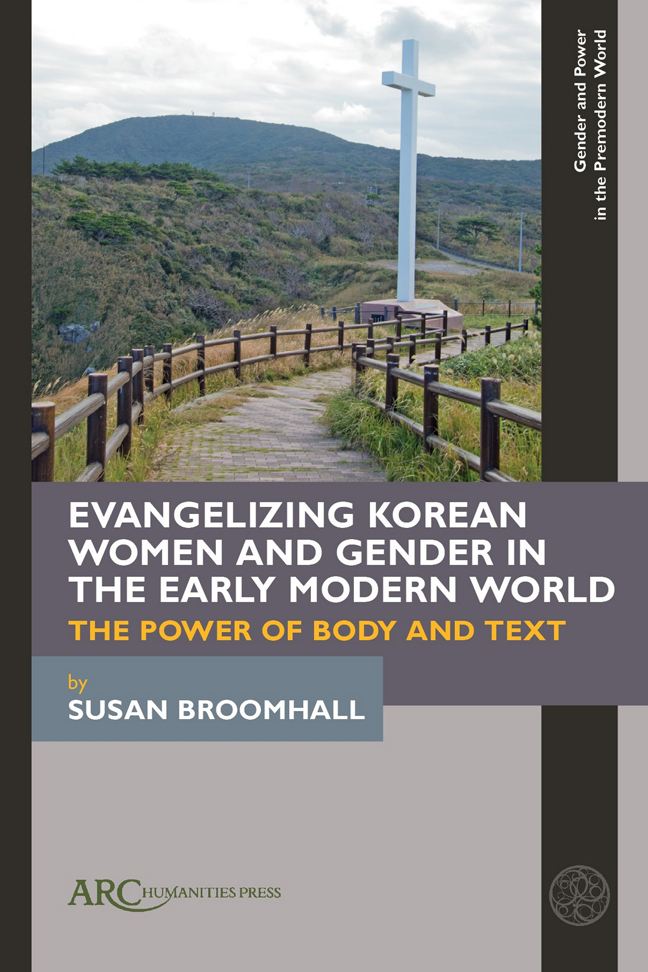Conclusions
Published online by Cambridge University Press: 18 February 2024
Summary
One of the great wonders that I cannot stop admiring is that God our Lord took the ambition and pride of Taiko- sama, lord of Japan [Hideyoshi], in the war he made on the kingdom of Korea, as a means to remove from that country very many souls that from eternity had been written in the book of life: some for excellent Christians and others illustrious martyrs.
THUS REFLECTED THE Jesuit Pedro Morejón from his vantage point in Macao in 1627. The introduction of Christianity to Korean women and men emerged as the product of violence. At least initially, it may have offered some a protection from forms of violence. For others, the best demonstration of their faith would be found in suffering more violence. At each moment, these intersections between violence, Christianity, agency, and opportunity were shaped by gendered dynamics that determined expectations and realities for evangelized Korean women and men in the region.
In her work on Japanese women's religious activities at this period, Haruko Nawata Ward argued that “women catechists preached, taught catechism and other Christian literature, translated and wrote Christian literature, persuaded women and men for conversion, baptized, heard confessions, disputed with the Shinto- Buddhist opponents, and cared for their flocks pastorally in various places.” Korean women's activities were not these. Primarily operating as part of a disenfranchised diaspora in the region, they had neither the same opportunities to express their faith nor to be recorded in the performance of their apostolate. Yet their expressions of faith were many and they often struck Catholic observers with the force of their commitment. This study has sought to be attentive to the complex dynamics of such spiritual agency for both women and men, as well as to their points of contact with archives of the region through which we can interpret it. Many recent studies of Catholic practice around the world have rightly suggested how their forms were nuanced by local social and cultural norms including gender ideologies. However, in the case of the evangelization of Korean women and men, it was rarely the norms of Joseon that were at stake but those of other societies in the region in which these individuals operated.
This study has made gender analysis an explicit and central part of its investigative framework.
- Type
- Chapter
- Information
- Evangelizing Korean Women and Gender in the Early Modern WorldThe Power of Body and Text, pp. 107 - 110Publisher: Amsterdam University PressPrint publication year: 2023



